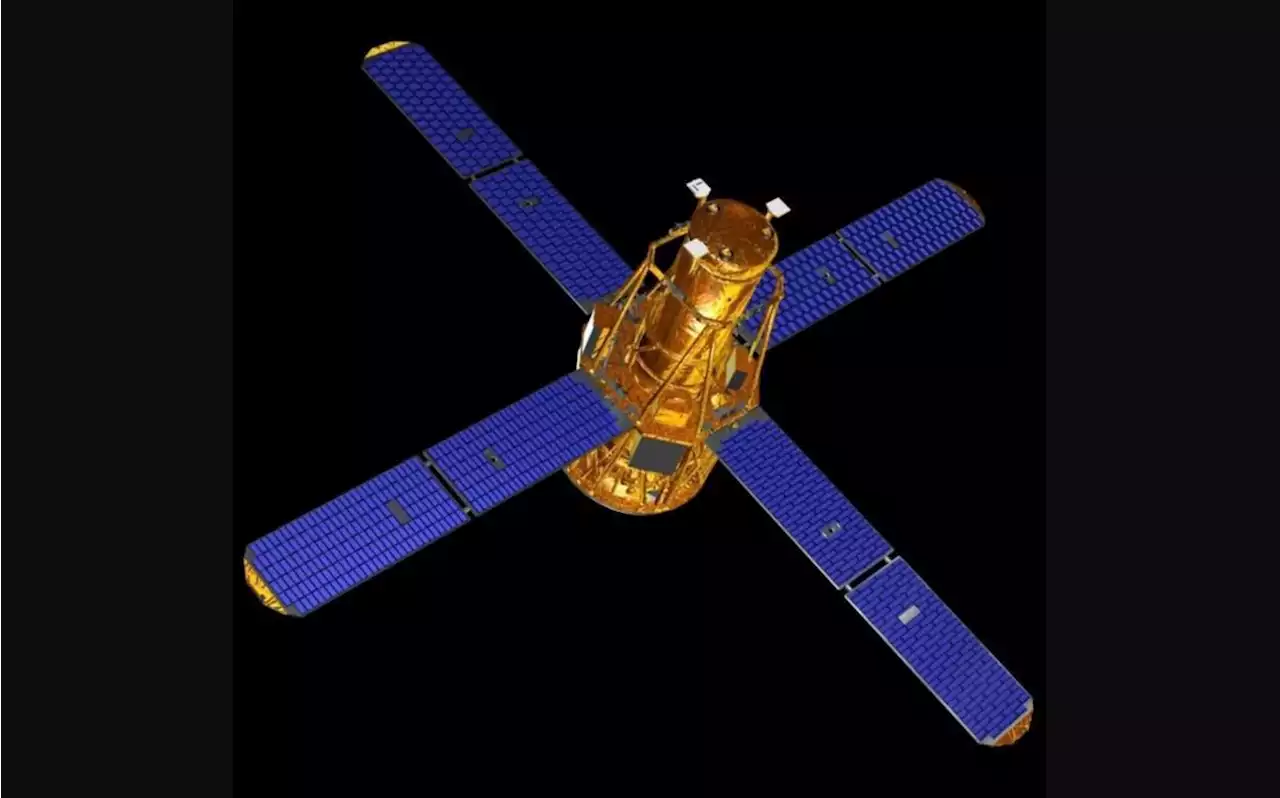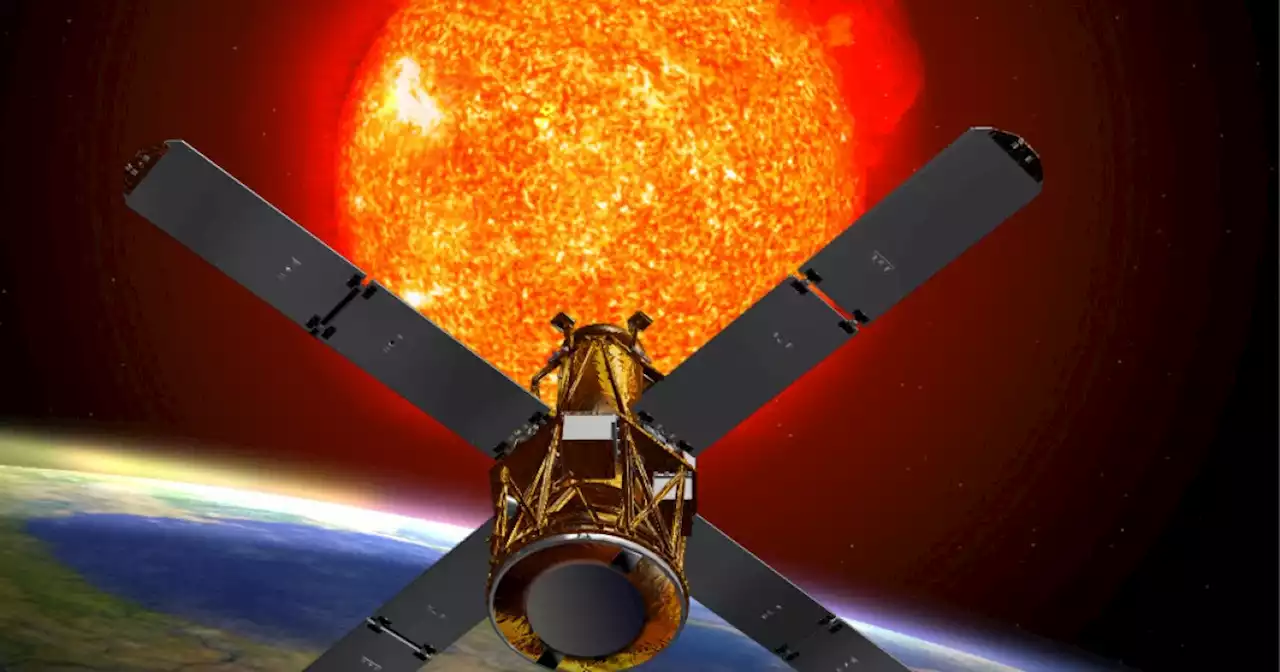After 18 years of loyal service, the RHESSI satellite is coming crashing back to Earth this week.
Heads up, everyone: a 600-pound, decommissioned satellite is on track to fall from orbit on Wednesday. While most of it is expected to burn up upon reentry, “some components are expected to survive,” according to NASA. Don’t worry; there’s probably no need to run for shelter, as the agency estimates that the odds for personal harm are around 1 in 2,467.
“RHESSI even made discoveries not related to flares, such as improving measurements of the Sun’s shape, and showing that terrestrial gamma-ray flashes—bursts of gamma rays emitted from high in Earth’s atmosphere over lightning storms—are more common than previously thought,” NASA writes in their announcement.During its 16-year-long tenure above earth, RHESSI recorded over 100,000 X-ray events, but was finally decommissioned in 2018 following increasing communications difficulties.
Malaysia Latest News, Malaysia Headlines
Similar News:You can also read news stories similar to this one that we have collected from other news sources.
 Fireball Finale: RHESSI’s Fiery Reentry After 16 Years of Solar ObservationNASA Retired Solar Energy Imager Spacecraft to Reenter Atmosphere NASA's retired Reuven Ramaty High Energy Solar Spectroscopic Imager (RHESSI) spacecraft is predicted to reenter Earth's atmosphere on April 19, with an uncertainty of +/- 16 hours. Launched in 2002, RHESSI observed solar flares and c
Fireball Finale: RHESSI’s Fiery Reentry After 16 Years of Solar ObservationNASA Retired Solar Energy Imager Spacecraft to Reenter Atmosphere NASA's retired Reuven Ramaty High Energy Solar Spectroscopic Imager (RHESSI) spacecraft is predicted to reenter Earth's atmosphere on April 19, with an uncertainty of +/- 16 hours. Launched in 2002, RHESSI observed solar flares and c
Read more »
 Dead NASA satellite will crash to Earth this weekThe 600-pound RHESSI spacecraft is expected to reenter on Wednesday (April 19) at 9:30 p.m. ET, plus or minus 16 hours.
Dead NASA satellite will crash to Earth this weekThe 600-pound RHESSI spacecraft is expected to reenter on Wednesday (April 19) at 9:30 p.m. ET, plus or minus 16 hours.
Read more »
 An old NASA spacecraft will crash to Earth on Wednesday | Digital TrendsA retired NASA spacecraft will reenter Earth’s atmosphere on Wednesday, with some parts of the vehicle expected to crash to Earth.
An old NASA spacecraft will crash to Earth on Wednesday | Digital TrendsA retired NASA spacecraft will reenter Earth’s atmosphere on Wednesday, with some parts of the vehicle expected to crash to Earth.
Read more »
 Old NASA satellite falling to Earth, risk of danger 'low'An old NASA satellite is expected to fall to Earth this week, but experts tracking the spacecraft say chances are low it will pose any danger. The defunct science satellite known as Rhessi will plummet through the atmosphere Wednesday night, according to NASA and the Defense Department. NASA said Tuesday that the reentry location is not being disclosed, given lingering uncertainty over when and where it might go down.
Old NASA satellite falling to Earth, risk of danger 'low'An old NASA satellite is expected to fall to Earth this week, but experts tracking the spacecraft say chances are low it will pose any danger. The defunct science satellite known as Rhessi will plummet through the atmosphere Wednesday night, according to NASA and the Defense Department. NASA said Tuesday that the reentry location is not being disclosed, given lingering uncertainty over when and where it might go down.
Read more »
 Eiffel Tower-sized asteroid due to soar past Earth next weekThe asteroid, named 2006 HV5, is one of the many Near-Earth Objects tracked by NASA.
Eiffel Tower-sized asteroid due to soar past Earth next weekThe asteroid, named 2006 HV5, is one of the many Near-Earth Objects tracked by NASA.
Read more »
 Behind the Scenes at NASA: Supercomputers Empower NASA Mission SuccessWhether developing new technologies for landing on other planets, improving air travel here at home, or more realistically simulating global weather and climate, supercomputing is key to the success of NASA missions. Here are 5 recent ways NASA is innovating with the help of powerful supercomputers.
Behind the Scenes at NASA: Supercomputers Empower NASA Mission SuccessWhether developing new technologies for landing on other planets, improving air travel here at home, or more realistically simulating global weather and climate, supercomputing is key to the success of NASA missions. Here are 5 recent ways NASA is innovating with the help of powerful supercomputers.
Read more »
